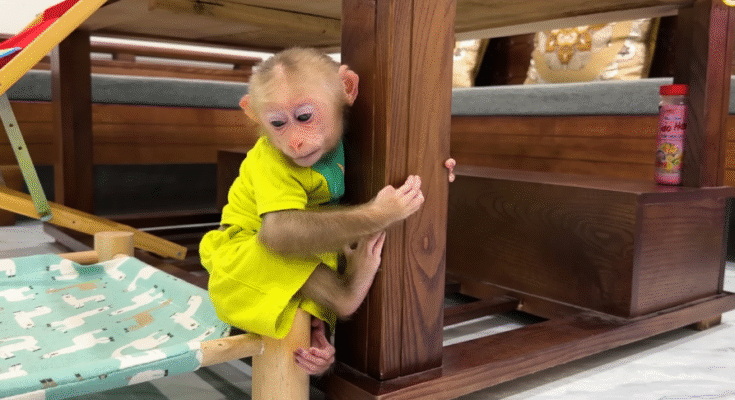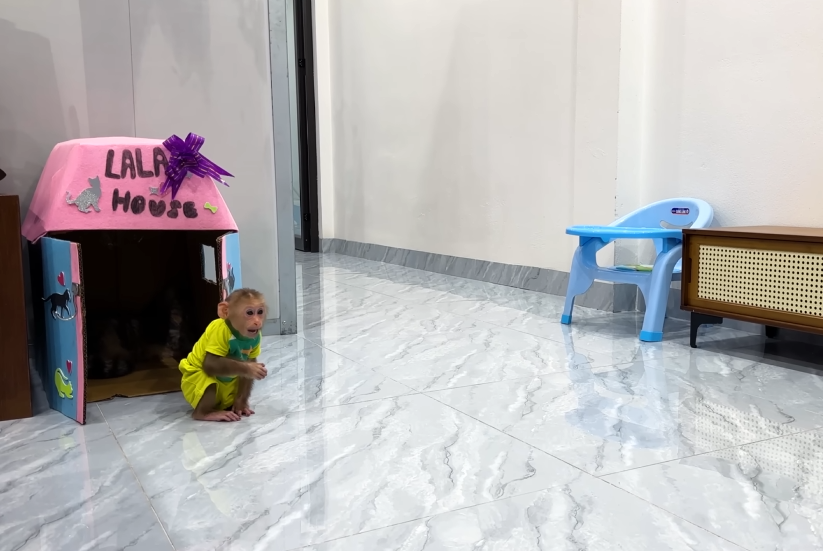
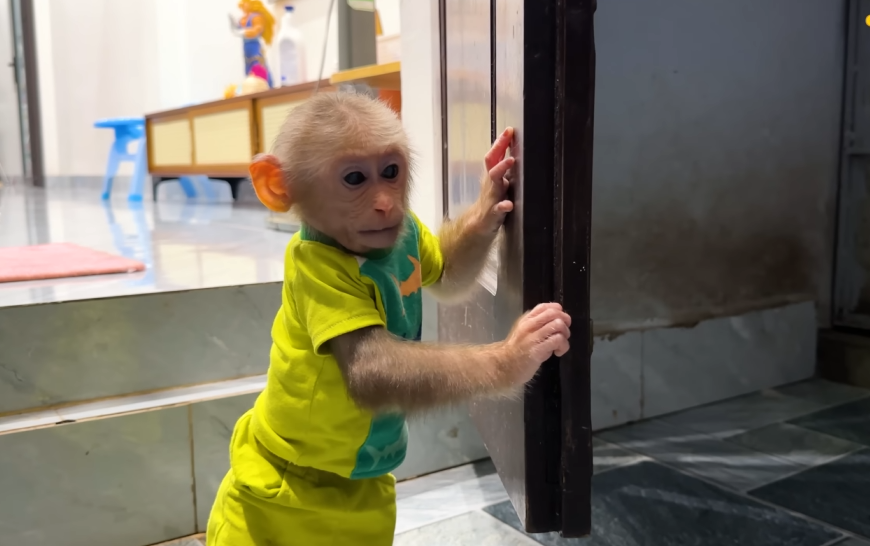
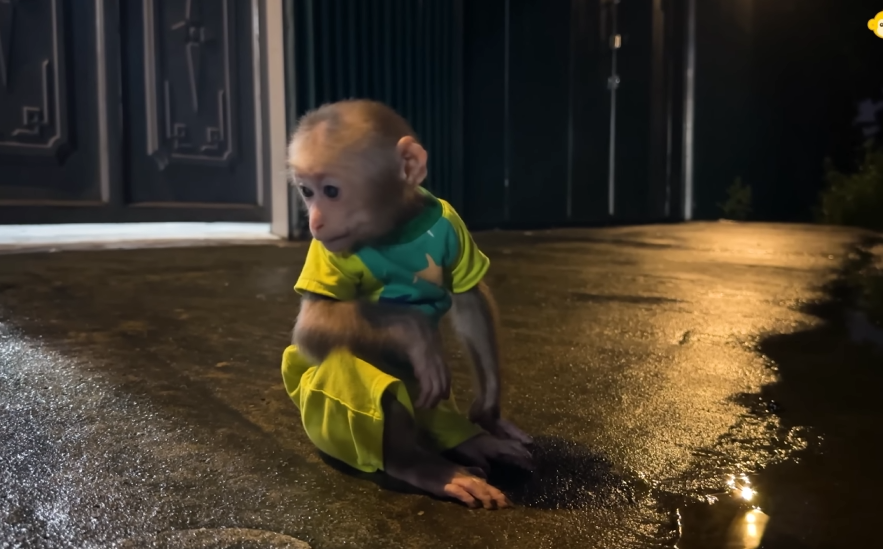
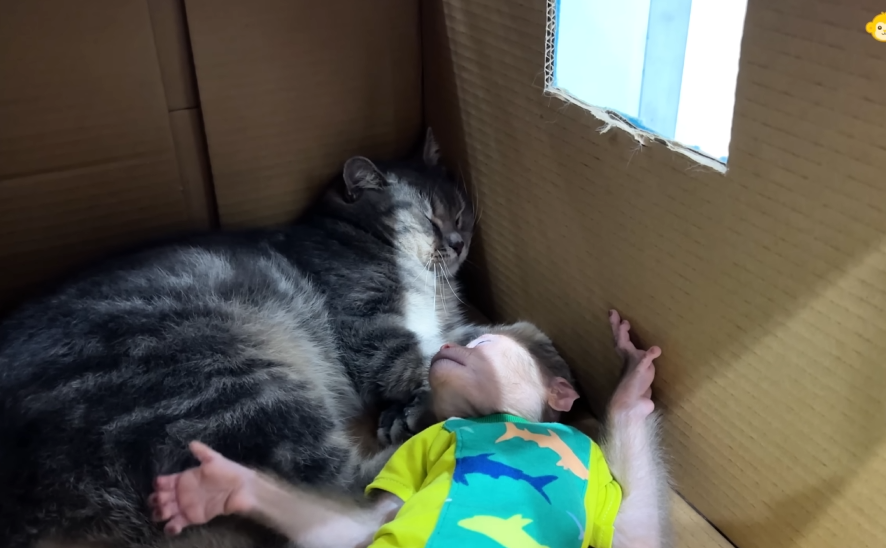
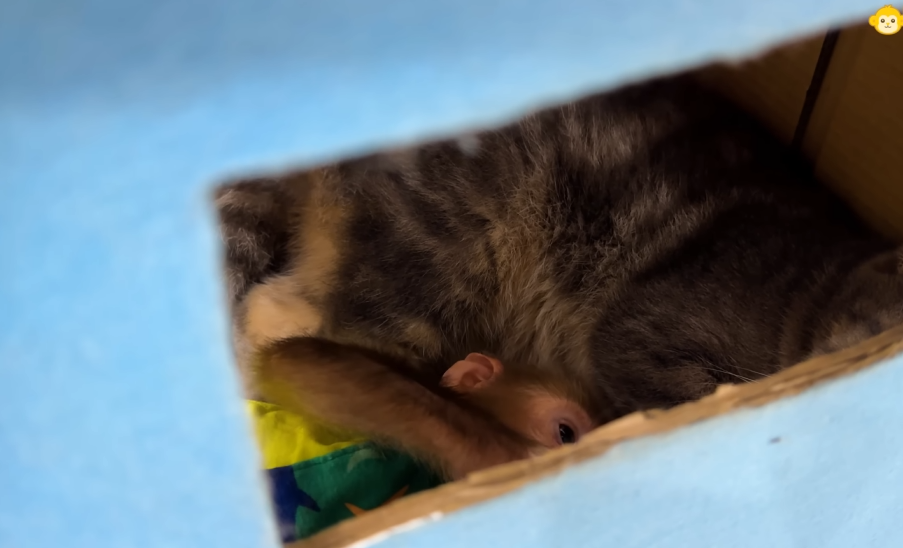
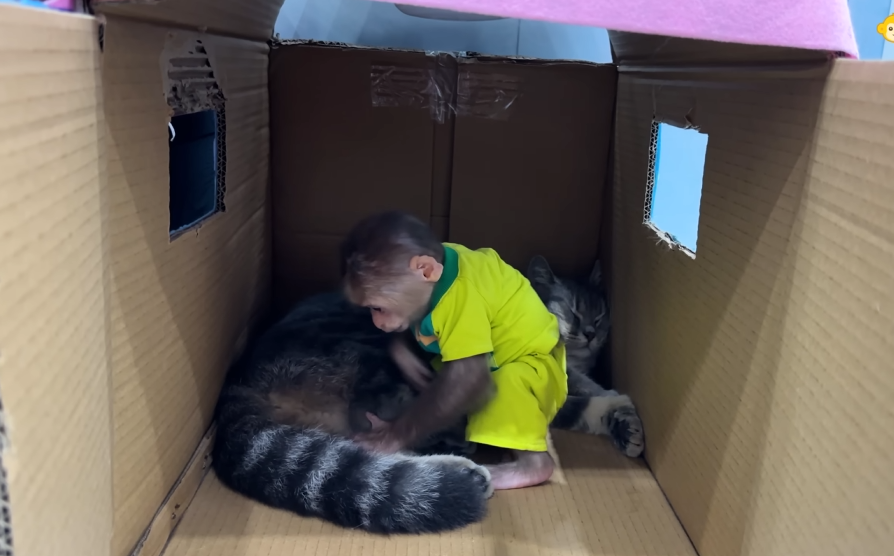
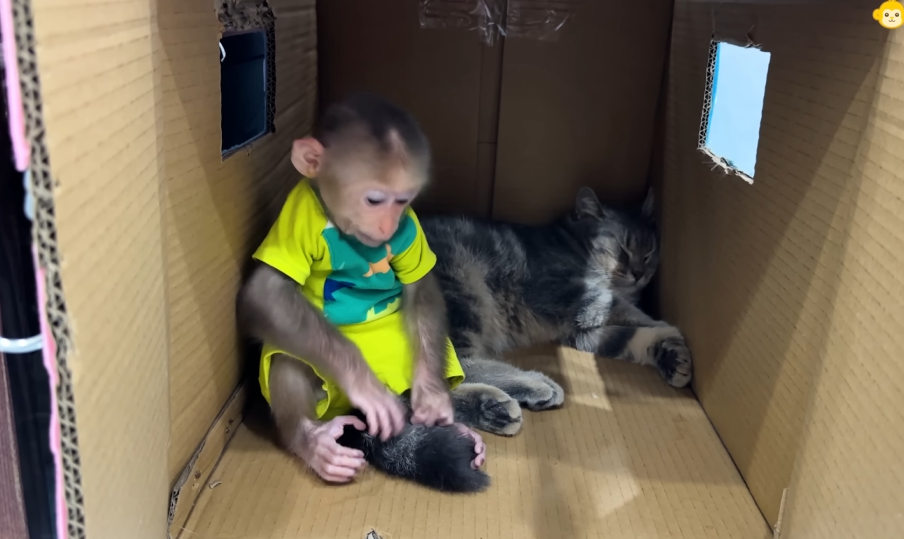
The golden light of the afternoon faded slowly into dusk. Lala sat on the wooden porch of their small house, her little feet swinging above the ground. The chirping of cicadas filled the air, and the neighborhood children had already gone home after an afternoon of play. Lala’s eyes kept wandering down the narrow dirt road that led to the village market.
Mom had gone to the market early that morning to sell fresh vegetables. Usually, by late afternoon, she would return with a basket half-filled with the things she bought and her warm smile ready to greet Lala. But today, the sun had slipped away and the first stars had appeared, and Mom still wasn’t home.
Lala hugged her favorite doll tightly to her chest. “Why is Mom so late today?” she whispered. The doll, of course, had no answer.
Her stomach rumbled softly, but she ignored it. She was more worried than hungry. In the distance, she could hear the sound of dogs barking and the faint chatter of neighbors sitting together for dinner. Inside their house, the lamps flickered, casting a soft yellow glow. It was cozy, but without Mom, the house felt too big and empty.
She tried to distract herself by laying out the dinner table the way Mom had taught her—two bowls, two plates, and chopsticks neatly side by side. But when she finished, the silence in the room made her chest feel heavy. “Mom should be here by now,” she murmured.
Her thoughts grew restless. What if something happened on the road? What if she fell sick? What if her bicycle broke and she can’t come back?
Lala bit her lip. She didn’t want to cry, but her eyes were already watery. She remembered how Mom always told her, “When you’re scared, take a deep breath, and think of happy things.” So, Lala closed her eyes and breathed deeply. She thought of Mom’s gentle laugh, of the way her hands smelled like fresh herbs, and of how warm it felt when she tucked Lala into bed. That calmed her—just a little.
Still, the worry didn’t leave her.
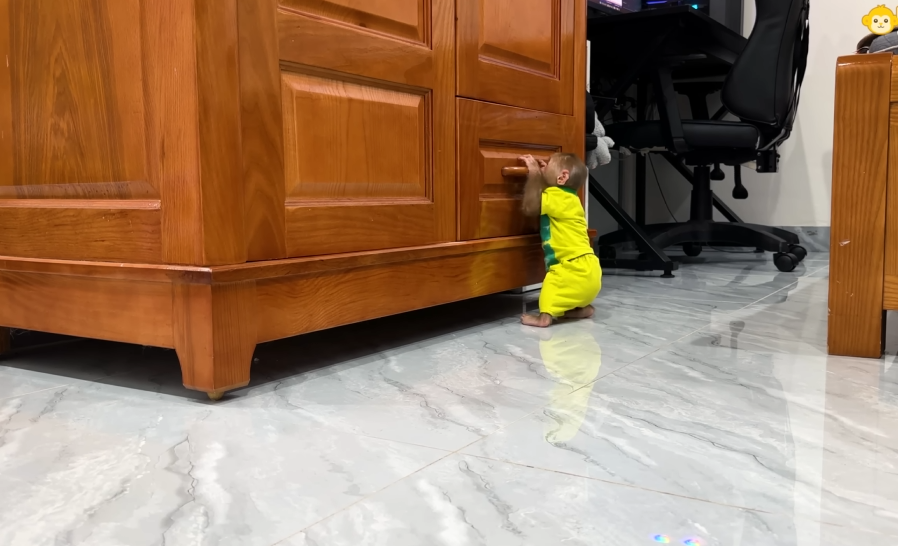
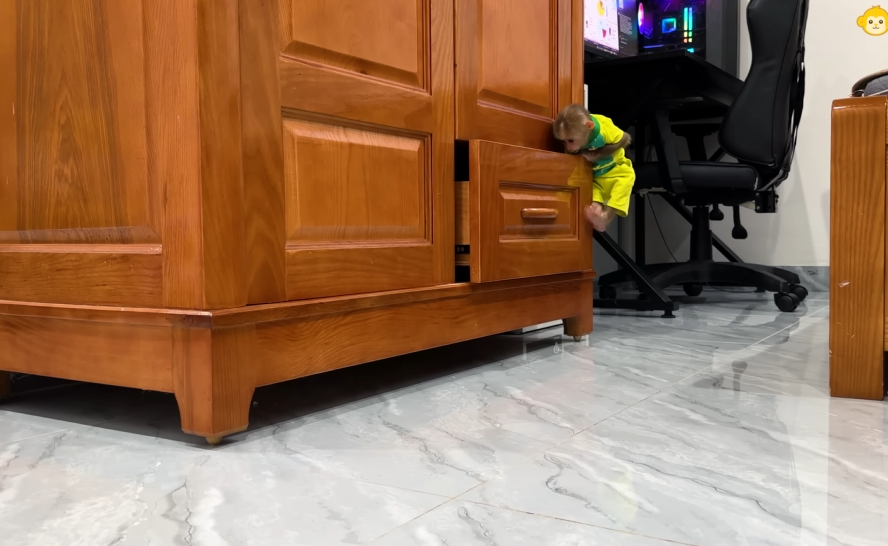
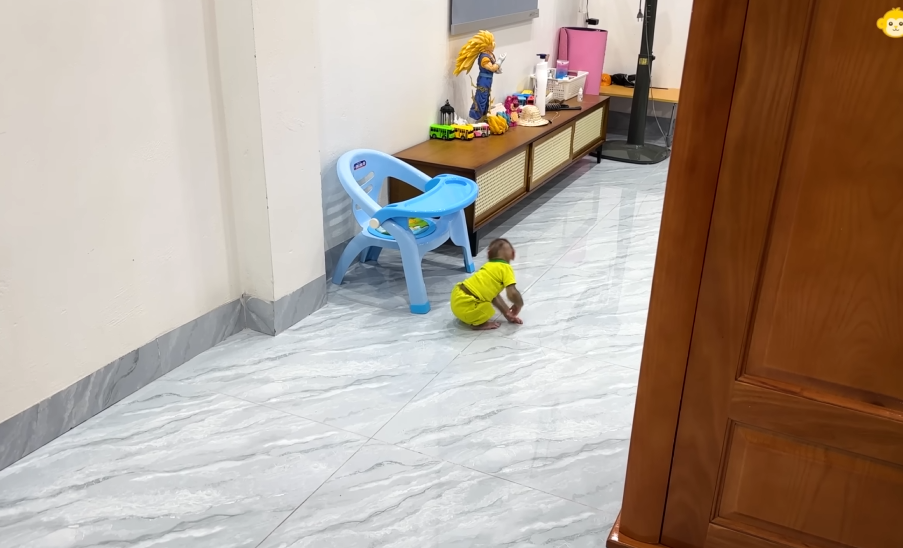
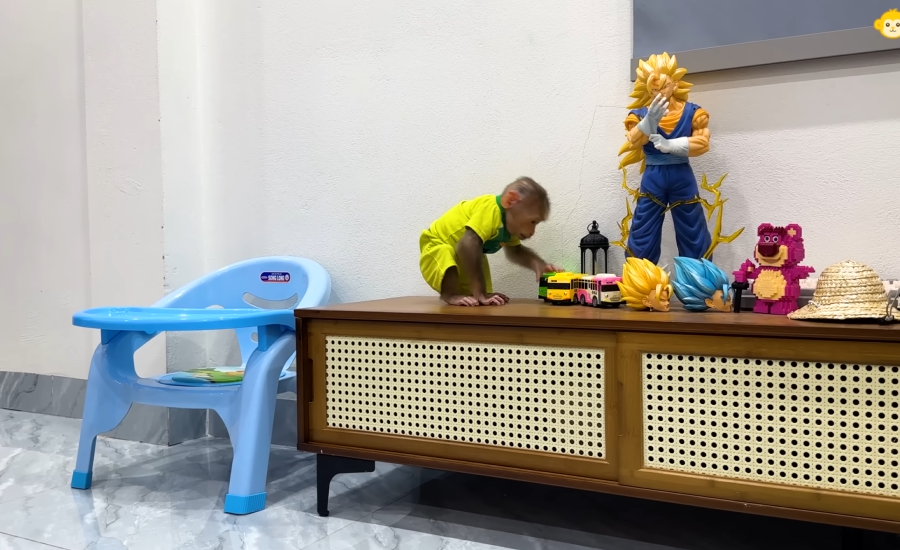
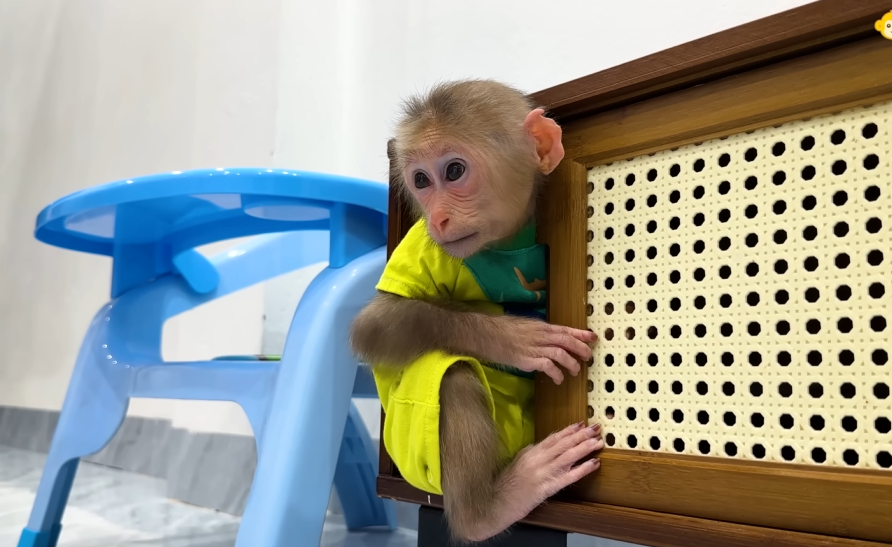
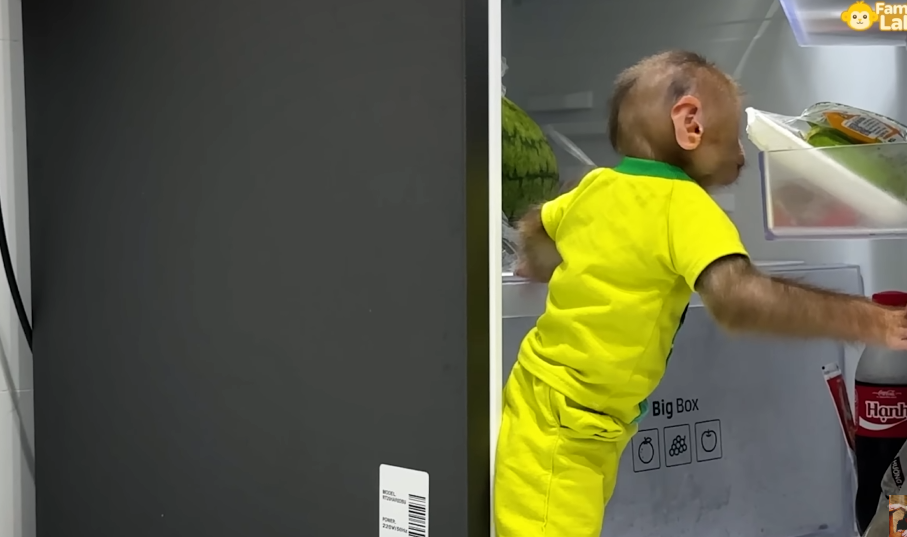
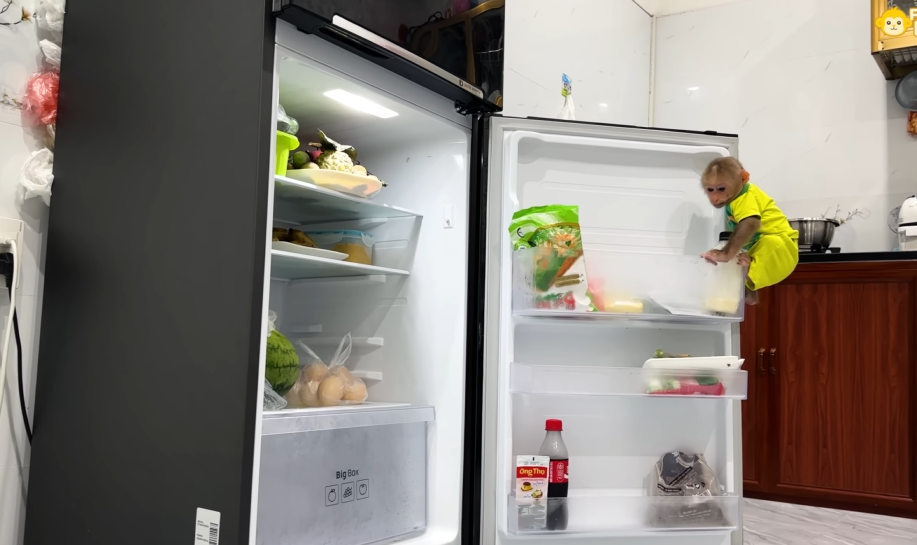
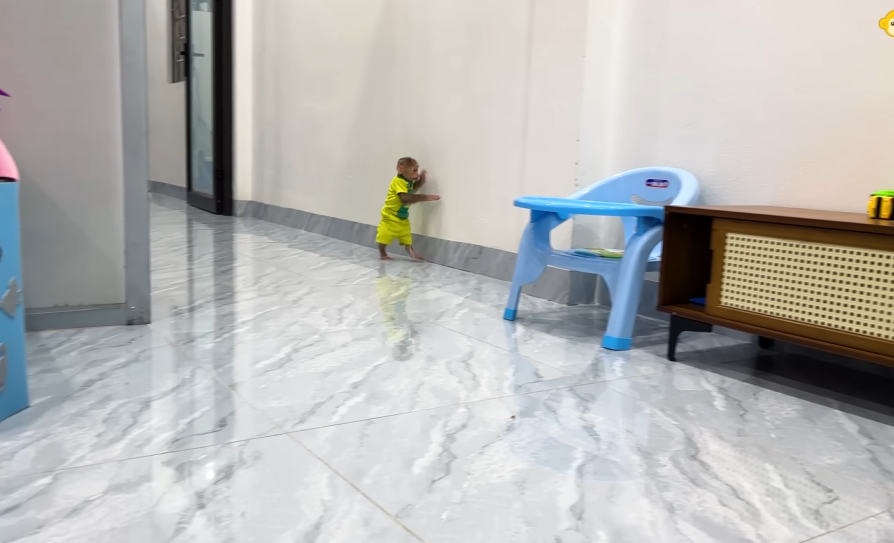
Finally, she decided to ask for help. She ran next door to Auntie Mai’s house, where the smell of grilled fish drifted through the open window. Auntie Mai looked up with concern when she saw the little girl standing at her door.
“Lala, what’s wrong, dear?”
“Auntie… Mom hasn’t come home yet. It’s already dark.”
Auntie Mai frowned and put down her ladle. “Don’t worry, child. Sometimes the market is busier than usual. Or maybe she stopped to help someone. Your mother is a kind woman.”
“But… what if she’s lost?” Lala’s voice cracked.
Auntie Mai crouched to her level and smoothed her hair. “Your mom knows the road better than anyone. Let’s wait a little longer, hmm? I’ll keep the door open so you don’t feel alone.”
Lala nodded, feeling a little braver. She went back home but left the door wide open, just as Auntie Mai promised. The night air was cool, and the moonlight spilled across the dirt path. She sat by the doorway, her chin resting on her knees, her eyes refusing to look away from the road.
Every sound made her heart jump—a rustling in the bushes, the squeak of a cart wheel, the flap of a bird’s wings. But none of them were Mom.
Finally, she couldn’t hold back anymore. She whispered softly, “Mom, please come home…”
Time felt endless. But just when her eyes started to blur with tears, she saw a faint light in the distance. It flickered, growing brighter, like a firefly floating toward her. Lala stood up quickly, her heart racing.
It was Mom!
She appeared, riding her bicycle carefully, a lantern tied to the front. Her basket was full, and her face looked a little tired but happy.
“Mom!” Lala shouted, running down the path.
“Lala!” Mom parked the bicycle and scooped her into her arms. “I’m so sorry, my dear. The market was very crowded today, and then I met an old friend who needed help carrying things. That’s why I’m late.”
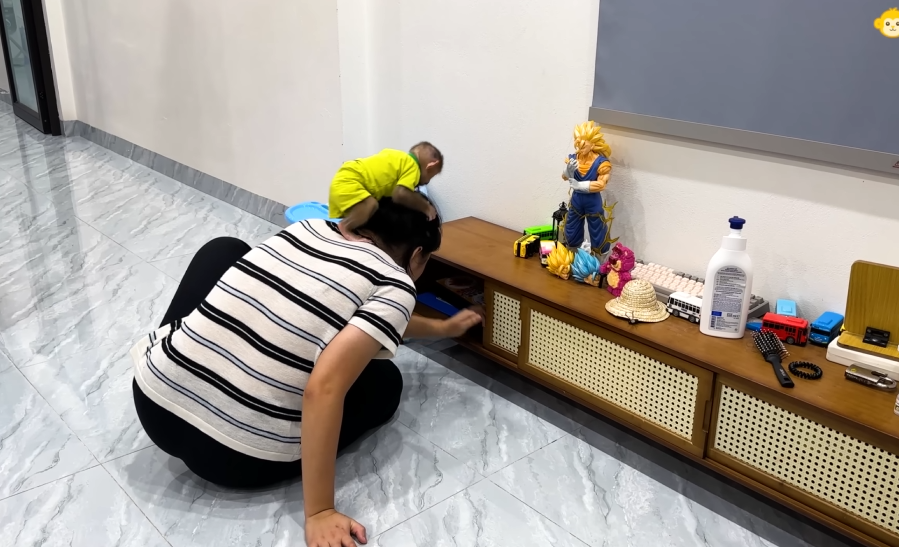
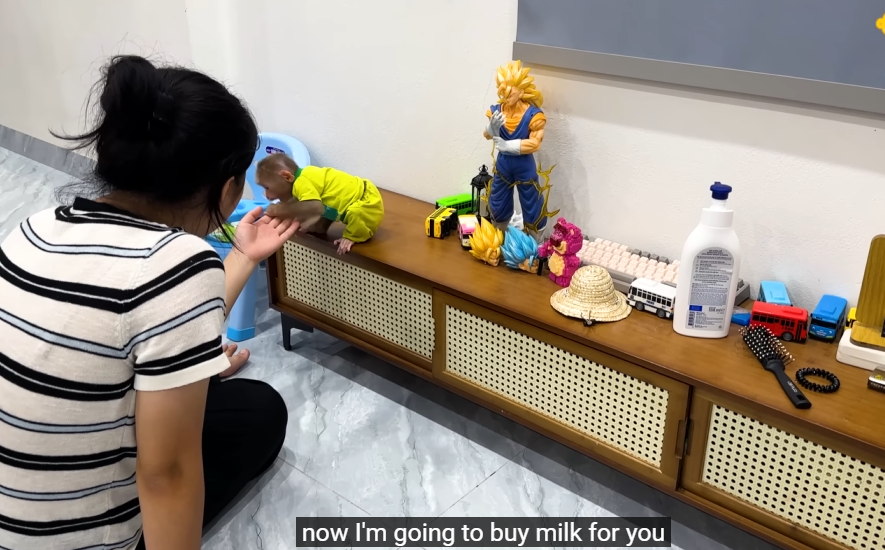
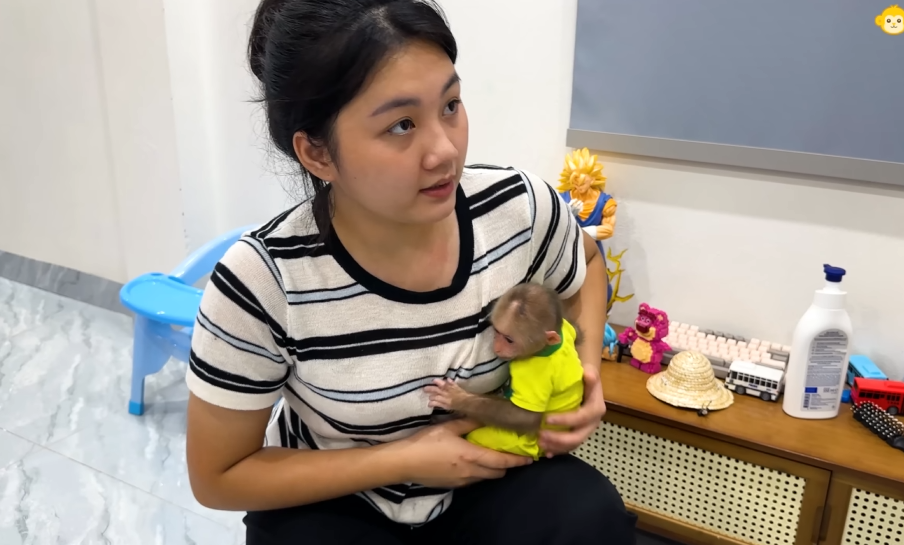
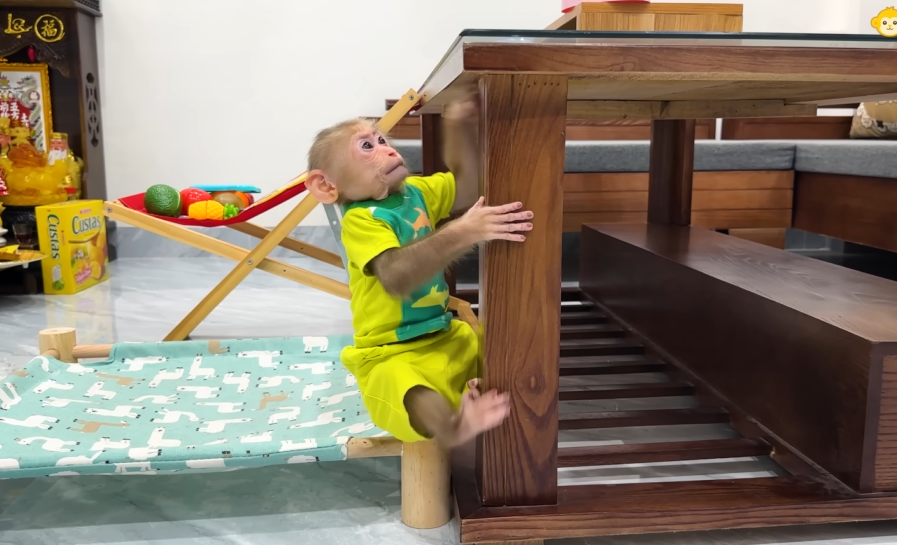
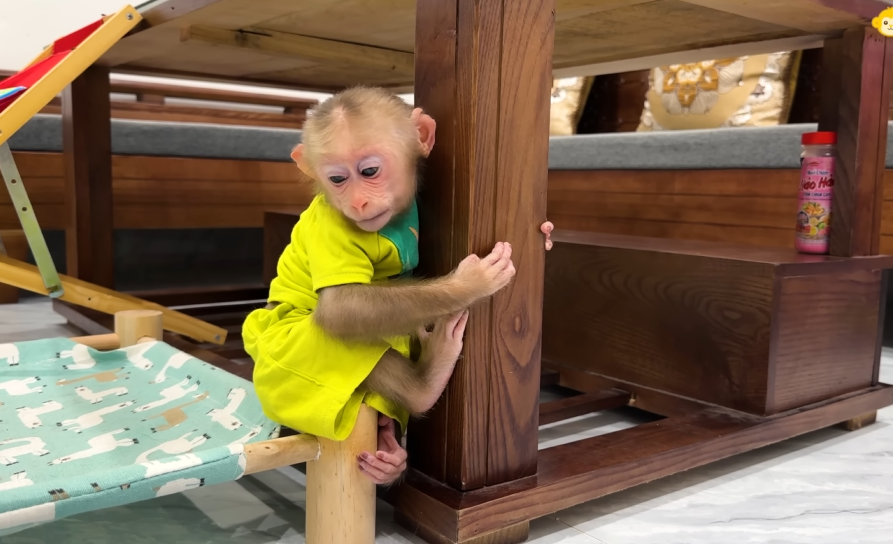
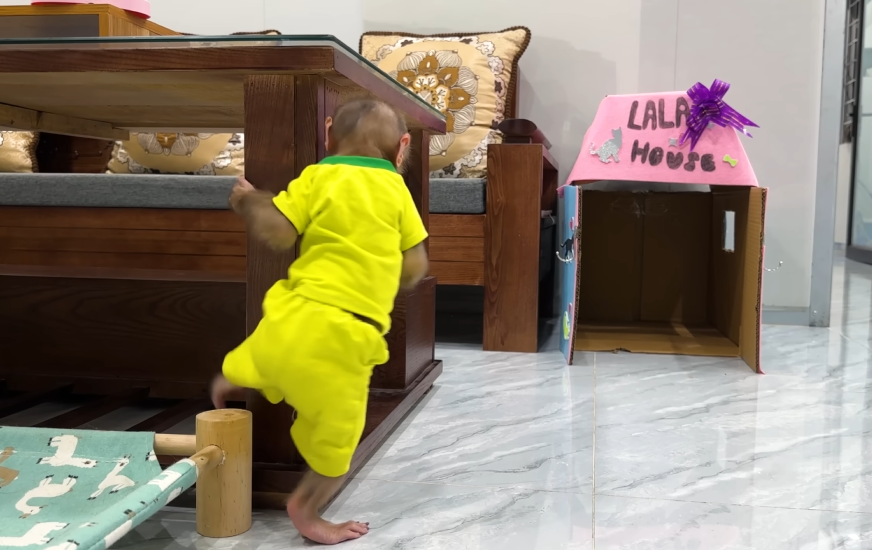
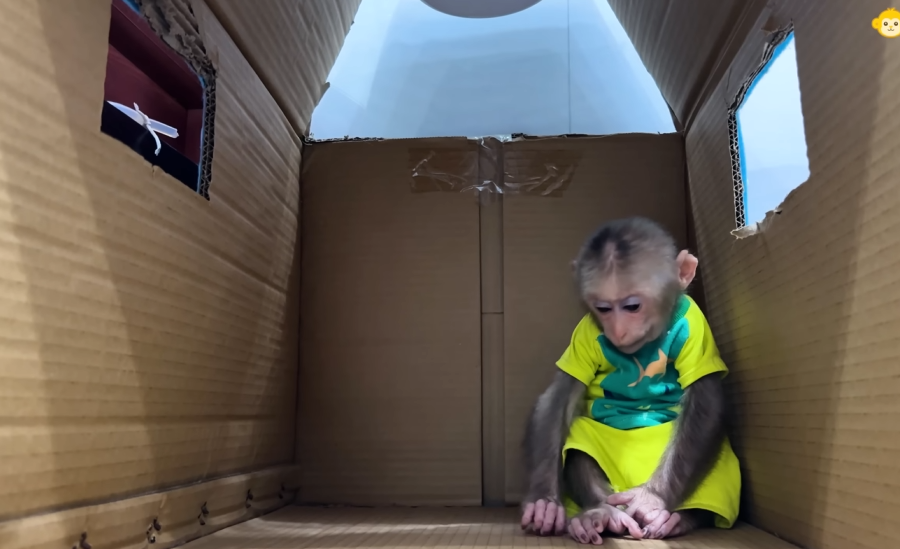
Lala clung to her tightly. “I was so scared! I thought something happened to you!”
Mom kissed her hair. “Oh, sweet girl. I didn’t mean to make you worry. You were very brave waiting for me.”
They walked home together, Mom pushing the bicycle with one hand and holding Lala’s hand with the other. The moment they entered, the warm glow of the lamps seemed brighter, and the house no longer felt empty.
Mom quickly prepared a simple dinner with the fresh vegetables she brought back. They ate together, and Lala, though still shaken, felt comforted by her mother’s presence.
As they finished, Mom looked at her seriously. “Lala, thank you for being strong. But next time, if I’m ever late, don’t keep your worries to yourself. You did the right thing asking Auntie Mai. That’s what neighbors are for.”
Lala nodded. “I tried to be brave… but I missed you so much.”
Mom hugged her again. “And I missed you too. I promise, if I ever have to stay late again, I’ll tell Auntie Mai ahead of time so she can let you know.”
That night, when Mom tucked her into bed, Lala held her hand tightly. “Don’t let go,” she whispered.
“I won’t,” Mom said softly. “I’ll always come home to you.”
Lala drifted to sleep with that promise in her heart.
Outside, the crickets sang under the moonlight, and the little house glowed warmly against the night. The fear of the evening faded into a memory, replaced by the simple, strong comfort of knowing that no matter what, Mom would always return.
And though Lala was still young, she realized something important that night: love wasn’t just about being together in happy times—it was also about trusting and being brave during the moments of worry.
